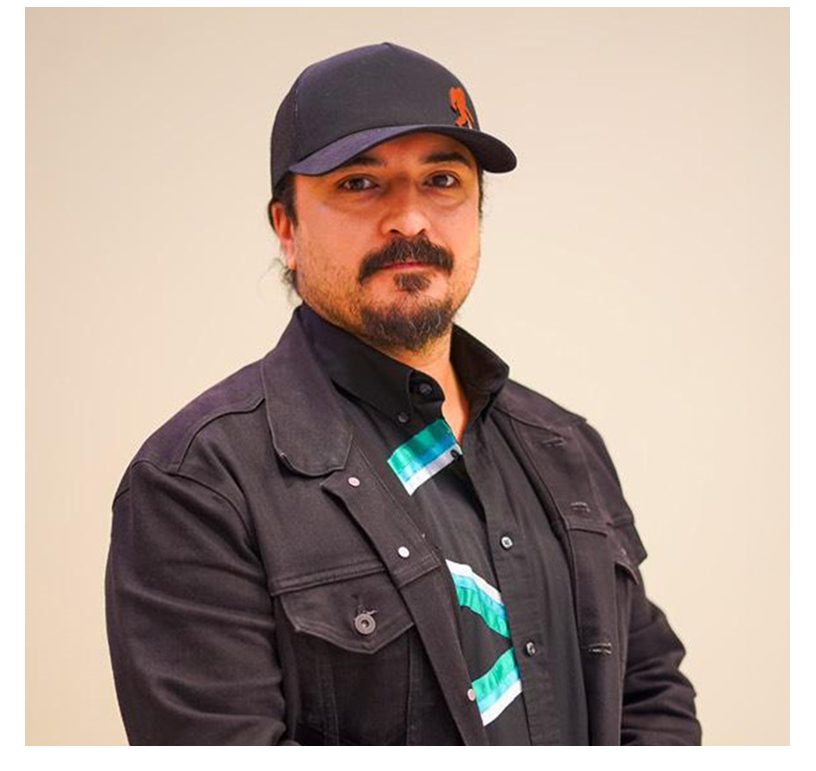Student Research Spotlight - Louis Busch, AECD Doctoral Candidate

While working as a therapist at a large psychiatric hospital for almost two decades, Louis Busch met many people at the lowest points of their lives. In addition to numerous mental health diagnoses, they frequently suffered from chronic health conditions and, often, a complete collapse of their social and family support systems. They were sick, afraid, and alone.
Occasionally, he witnessed remarkable transformations where patients who had struggled for years would return to their community, reconnect with loved ones, and reclaim meaning in their lives beyond their diagnoses. These successes, however, were rare. More often, patients continued to struggle, relapsed, and sometimes found themselves in worse circumstances than before. Many died long before their situations improved.
Busch observed that while the mental health system fails people of all backgrounds, it creates unique barriers for Black, Brown, and Indigenous patients. "The system seems designed to fail us, from its methodology to its foundational values," he reflected.
On his own journey of recovery, Louis found healing alongside helpers from his community and from those whose healing journeys intersected with his own. He notes it is common for First Nations Peoples to refer to "helpers" or "helping work" concerning individuals who provide relationally based support, which can range from ceremonial healing to interpersonal guidance.
“I became increasingly interested in these helpers as unsung heroes of community wellness. They didn’t necessarily have degrees in mental health fields, and they are rarely recognized or compensated for their efforts, yet they make great personal sacrifices to support the healing journeys of those around them, often with enduring results”, Busch said.
These insights guided Louis to the Adult Education and Community Development (AECD) Program at OISE, University of Toronto. He is a PhD Candidate in the program.
As a Bear Clan member of Nisichawayasihk Cree Nation, Louis centers his research within a Nēhîthâw (Cree) worldview. The AECD program's commitment to transformative education and Indigenous methodologies provided an ideal convergence point where his extensive mental health experience could integrate with his cultural perspective. The program's emphasis on adult education, community development, and social justice learning created space for exploring what he describes as a "relational systems theory of helping work."
Under Dr. Jennifer Wemigwans' supervision, Louis has developed his capacity for integrating Indigenous knowledge with academic inquiry. "Having a strong Anishinaabekwe as a doctoral supervisor has been invaluable," he noted. "Dr. Wemigwans' expertise in Indigenous knowledge systems and her relational approach to community engagement has provided an effective template for my own research journey."
Louis's doctoral journey has been enriched by several key opportunities. He is the recipient of the prestigious 2024 SSHRC Talent Award, which recognizes outstanding achievement by an SSHRC-funded scholar who maintains academic excellence, excels in research and knowledge mobilization, and demonstrates clear potential as a future leader. He completed a visiting fellowship at Harvard University's Native American Program in the spring of 2024, supported by an SSHRC Michael Smith Foreign Study Supplement. This experience allowed him to study with Professor Joseph Gone, a leading scholar in Indigenous mental health, and to deepen his understanding of culturally-grounded interventions.
Louis's doctoral research investigates who Indigenous helpers are, the nature of their helping work, and the role of language and dialogue in the relationships they form with those they help. Titled Kwayask Ayamiwin Kaki Nitaskākon (Good Words are Medicine), this work seeks to articulate a Nēhîthâw (Cree) theory of helping work. This work is about centering Indigenous voices and perspectives, particularly those of helpers, Elders, and traditional knowledge keepers. Through dialogue, visiting, sharing circles, storytelling, and ceremony, he is exploring how helping and healing are understood and transmitted through language, story, kinship, and collective responsibility. The research aims to contribute to culturally grounded mental health services for First Nations peoples, while supporting the resurgence of Indigenous helping practices that are holistic and community-driven.
Beyond his doctoral studies, Louis's contributions span several areas. He has a background as a registered psychotherapist and behaviour analyst with nearly two decades of clinical experience in mental health settings. He currently serves as an Assistant Clinical Professor (Adjunct) in the Department of Psychiatry and Behavioural Neurosciences at McMaster University, works as a psychotherapist at Weaving Wellness Centre, and since January 2025, has taken on the role of Special Projects Officer for Indigenous Pedagogy and Curriculum Development at the University of Toronto Mississauga. He has authored and co-authored numerous publications, including peer-reviewed articles and book chapters, focusing on topics such as Indigenous methodologies, contextual behavioral science, forensic mental health, youth violence prevention, interprofessional care, cultural adaptation of evidence-based practices, and neurodevelopmental disability research. His objective across all these endeavors is to contribute to positive social change and the empowerment of marginalized peoples through culturally relevant wellness initiatives.
“Indigenous helpers have always understood that healing happens in relationship, through story, and within community. When we recognize that wellness extends beyond individual symptoms to encompass relational systems, we open space for transformation. My hope is that this research will create pathways for the work of helpers to transform how we understand and implement mental health care.”